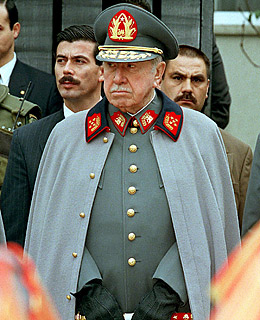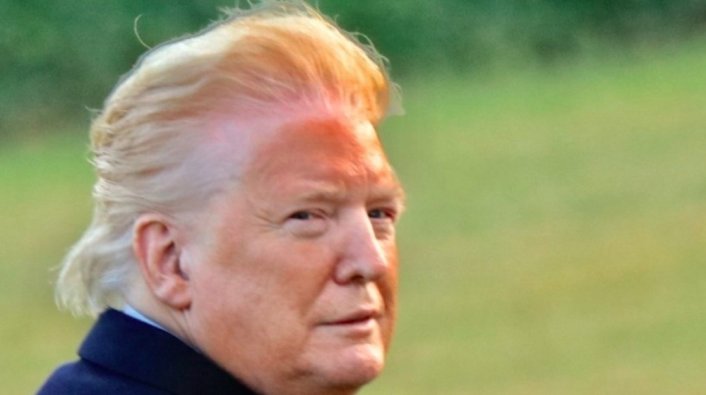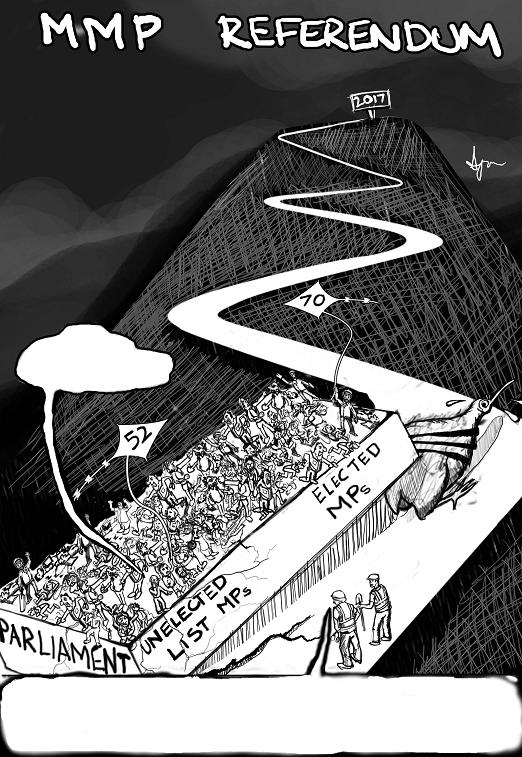Today Chileans voted overwhelmingly to elect a constitutional assembly and redraft the 1980 Constitution promulgated by the dictatorship of Agusto Pinochet. I regret that my old friend Bob Barros, whose death I wrote about a while ago, is not around to see this moment because he was the first person to write a book length analysis of the Chilean dictatorship’s attempts to institutionalise its rule via legal means, including constitution drafting.
The process for redrawing the foundational charter will involve electing a citizen constitutional convention next year, then voting on its draft version of a new charter in 2022. Presumably authoritarian clauses such as granting the military 15 percent of pre-tax copper revenues will be removed in the process.
But that is not what I am here to write about. Instead, I bring Chile up because events in the US remind me something my father told me years ago when we were watching Pinochet trying to neutralise the transition to democracy by organising a referendum in 1988 on extending his rule for another eight years. The wording of the referendum was deliberately phrased in Pinochet’s favour, with a “Yes” vote being a reaffirmation of support for the Motherland while a “No” vote was construed as unpatriotic and a negative slap at all that was good in Chile.
As it turns out, in 1989 I just happened to be a Research Fellow at a think tank at the same time that one of the architects of the 1988 “No” campaign was in residence. His name is Eugenio Tironi, a sociologist, who was one of those responsible for turning a “No” vote into a positive affirmation of support for democracy and a “Yes” vote as continued support for oppression. His accounting of the obstacles the “NO” campaigners faced, both in terms of physical intimidation (it was a murderous regime that they were confronting after all) and in terms of the institutional deck being stacked against them, was inspirational. The “No” vote won with 56 percent in that contest and the rest, as they say, is history. Yet, even though there have been amendments to the 1980 constitution, it took forty years for it to be designated for comprehensive review.
Again, I digress. During those years my father, who had been the head of the American Chamber of Commerce and managing director of a foreign multinational in Chile in the 1970s and was a friend of Pinochet and some of his ministers, strongly debated with me the merits of the so-called “Chilean Miracle,” military authoritarians as political circuit breakers and the role of the “Chicago Boys” in crafting Chilean economic policy. I have a University of Chicago Political Science Ph.D. from that era and had many run-ins with the Chilean (and Argentine, Brazilian and South Korean) economics graduate students of the time, many of whom were junior military officers directly involved in atrocities and other human rights abuses. Let’s just say that we did not get along on or off the soccer field.
By 1989 I had written a bit about military authoritarianism, state terror, democratic transitions and issues of labour politics and civil-military relations in transitional moments. I had begun also begun my affiliation with various US security agencies, something that lasted until I emigrated to NZ. So the discussions with my father were driven by ideological difference but for both of us the conversations were grounded in practical experience in Latin America–his doing business for over 30 years in the region and mine as a result of the mix of personal and professional experiences dating back to my childhood in Argentina.
During the 1988 referendum in Chile by father and I happened to be spending time together when out of the blue he said “when the dictator starts wearing capes, he is soon to fall.” Seeing the dumbfounded look on my face he explained that it was a variation on the “emperor has no clothes” theme. To wit: when a military dictator starts looking like Elvis in his final (Las Vegas) years, it means that he no longer has anyone around him to give him objective assessments of his position. Surrounded by sycophants and yes-men, the dictator loses an important feedback loop by which to judge the efficaciousness and popularity of his actions. At that point he starts making mistakes and yet no one will point out to him where he went wrong. By the time he realises that he has gotten himself into trouble via faulty decision-making, the knives are out and the rats are jumping ship.
That was what the 1988 referendum was for Pincohet. I mean, look at the guy:


Heck, his whole entourage had the syndrome:

It is possible that “el Viejo,” as we called my old man, may have warned “Don Agusto” that his uniform had limited mileage, even if his advice went unheeded. At a minimum my father understood that the general needed to drop the capes when sharing public space with foreign executives. Around my Dad he apparently did (sorry for the scan but it tells the story nevertheless):

The captions write themselves at this point but suffice to say this was before Pinochet went full Elvis.
The larger issue is that once you reach the wearing capes state of affairs, it is all over but the shouting.
That brings me to Donald Trump. True, he does not wear capes (although he does wear long overcoats, as Barbara has kindly pointed out in a comment) and true, he is an elected wanna-be Pinochet not installed by coup. But if his ridiculous hair and fake tan are not clear indicators of his “cape syndrome,” then the fact that he is now standing on balconies and stages barking about socialism, low water pressure, “rounding the corner” on Covid-19, repeating that more testing means more cases, then refusing to quarantine or socially distance numerous infected White House employees while claiming that he is “immune” and saying that Biden is going to allow dark males to rape and pillage in white suburbia are all one needs to understand that he is mentally and politically done. Either he is not listening to his advisors or they are not telling him the truth, but either way his path is his downfall. For a guy who supposedly is the most powerful person on earth, his world is really small and strikingly insular.
I mean, really:

Come to think of it, Trump probably has a cape or two in his closets, complete with matching hoods, but breaking them out at rallies might be too much for most voters (although one has to admit that it would be a truly epic moment in US political history if he did so). So when it comes to determining if he has reached peak “cape,” we will just have to settle for what he says and does (and not do).
All of which suggests that he is delusional when shouting MAGA! when in fact he is swimming upstream into a blue tide.
PS: It has come to my attention that Darth Vader and some of his minions also wore capes. Make of that what you will.


